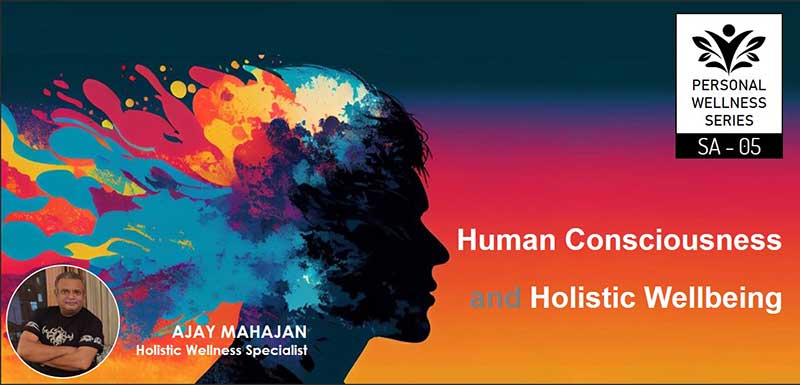
Introduction
The relationship between human consciousness and holistic well-being is a subject of profound significance. In an age when stress, anxiety, and discontentment are widespread, understanding the deep connection between our conscious awareness and our overall well-being is essential. This comprehensive exploration delves into the intricate and interwoven nature of these concepts, unveiling the ways in which consciousness influences every facet of our health and happiness.
Understanding Human Consciousness
Before we delve into the connection between consciousness and well-being, it’s crucial to establish what we mean by “consciousness.” In the broadest sense, consciousness refers to our subjective experience of the world. It encompasses our thoughts, emotions, perceptions, and self-awareness. Philosophers, scientists, and spiritual leaders have pondered the nature of consciousness for centuries, and it remains a complex and enigmatic phenomenon.
There are multiple theories and philosophies about the nature of consciousness, ranging from materialist perspectives that consider it an emergent property of the brain to more holistic and metaphysical viewpoints that posit consciousness as fundamental, existing independently of the physical body.
Holistic Wellbeing Defined
Holistic well-being is a comprehensive approach to health that considers the individual as a whole, incorporating physical, mental, emotional, and spiritual dimensions. It extends beyond the mere absence of illness to encompass happiness, fulfilment, and the realization of one’s potential. A holistic approach to well-being recognizes the intricate connections between these facets and emphasizes the importance of balance.
The Mind-Body Connection
The mind-body connection is fundamental to the relationship between consciousness and well-being. It underscores how our mental and emotional states influence our physical health.
Stress and Wellbeing
Stress is a prime example of this connection. Chronic stress can lead to physical ailments such as cardiovascular disease, gastrointestinal issues, and weakened immunity. Additionally, stress can exacerbate mental health conditions like anxiety and depression, further affecting overall well-being.
The Placebo Effect
The placebo effect is another compelling example of the mind’s ability to influence the body. Studies have shown that individuals who believe they are receiving effective treatment, even if it’s a placebo, often experience real improvements in their condition. This phenomenon underscores the profound role of consciousness in shaping our experiences.
Emotional Wellbeing
Our emotional state is deeply entwined with our consciousness and, in turn, impacts our overall well-being. A profound emotional disturbance can cloud our consciousness and disrupt our lives. Emotional well-being involves understanding, managing, and expressing emotions constructively.
The Role of Mindfulness
Mindfulness is an invaluable practice for emotional well-being. By becoming more conscious of our thoughts and emotions, we can better regulate our reactions, reduce negative emotional states, and enhance our overall well-being. It’s an approach rooted in conscious awareness.
Positive Psychology
Positive psychology focuses on fostering positive emotions, resilience, and personal strengths to improve wellbeing. It emphasizes concepts such as gratitude, optimism, and self-compassion, all deeply connected to consciousness.
Consciousness and Spiritual Wellbeing
Spiritual well-being is an often overlooked dimension of holistic health. It relates to our sense of meaning, purpose, and connection to something greater than ourselves. Consciousness plays a vital role in nurturing this aspect of well-being.
Meditation and Spirituality
Meditation is a practice deeply rooted in consciousness and spirituality. By quieting the mind and increasing self-awareness, meditation can lead to profound spiritual insights and enhanced well-being.
Connection and Oneness
Many spiritual traditions emphasize the interconnectedness of all life. This perspective encourages us to view ourselves as part of a greater whole, fostering a sense of purpose and contentment.
The Impact of Belief Systems
Our belief systems and worldviews have a powerful influence on our consciousness and, subsequently, our well-being. Whether rooted in religious faith, philosophical principles, or personal convictions, our beliefs shape our thoughts, emotions, and actions.
Religion and Wellbeing
Numerous studies have explored the relationship between religious belief and well-being. For many, religious faith provides a source of comfort, community, and a sense of purpose, all of which can significantly impact overall well-being.
The Power of Positive Beliefs
Positive beliefs in one’s ability to overcome challenges and lead a fulfilling life are associated with improved well-being. Self-efficacy, or the belief in one’s capability to achieve goals, is a significant factor in shaping our experiences.
Cultivating Consciousness for Wellbeing
Cultivating consciousness is a dynamic process that can enhance holistic well-being. Here are practical steps to foster a deeper connection between consciousness and well-being:
1. Mindfulness and Self-Awareness
Practice mindfulness to become more self-aware. This involves observing your thoughts and emotions without judgment. By understanding your inner world, you can make choices that enhance your well-being.
2. Emotional Regulation
Learn strategies for emotional regulation, such as deep breathing, meditation, or seeking professional support when necessary. Emotions significantly impact consciousness and overall health.
3. Gratitude and Positivity
Cultivate gratitude and positivity in your daily life. Recognizing the positive aspects of your existence can improve your consciousness and well-being.
4. Spiritual Exploration
Explore your spiritual side. This doesn’t necessarily mean adhering to a specific religion but could involve practices like meditation, mindfulness, or connecting with nature.
5. Aligning Beliefs
Examine your belief systems. Do they support your well-being? Are there negative or limiting beliefs that you can reframe or release?
6. Seek Balance
Recognize the importance of balance in your life. Overemphasis on one aspect of your well-being at the expense of others can lead to imbalance and discontentment.
Conclusion
The profound connection between human consciousness and holistic well-being highlights the intricate interplay between our inner world and our physical and emotional health. Understanding this relationship and actively nurturing your consciousness can enhance well-being in all dimensions of life.
This journey is deeply personal, and there’s no one-size-fits-all solution. It requires self-reflection, self-compassion, and an ongoing commitment to growth. By harnessing the power of your consciousness, you can create a life filled with purpose, health, and happiness.
Ajay Mahajan | Holistic Wellness Specialist
Founder & CEO – Wellness Seekers Academy
+91 96548 89815 | ajm@ajaymahajan.info
